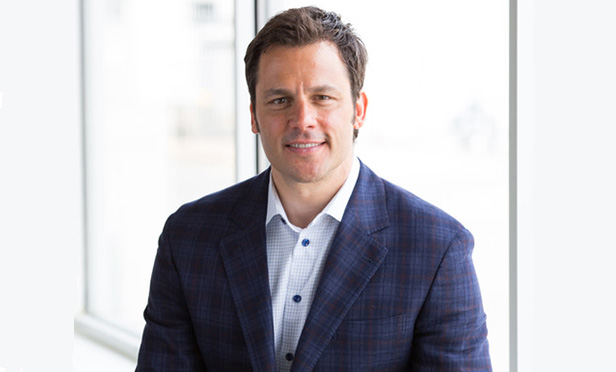 Estis: “The way we organize ourselves to accomplish work is being fundamentally transformed
Estis: “The way we organize ourselves to accomplish work is being fundamentally transformed
from what it was 20 years ago.”
MINNEAPOLIS—There are few things in life that are more daunting than change—especially for those who are unprepared. That's where Ryan Estis steps in. Estis, who will be keynoting the upcoming Global Summit of the Institute of Real Estate Management (IREM), September 26 through 29, in Hollywood, FL, brings a message of hope for all business managers who dare to look change in the face and adapt.
GlobeSt.com: What is the message you're bringing to IREM Global Summit attendees?
Ryan Estis: I'm going to talk about leadership that makes a difference in the lives of the tenants, the residents and the communities we serve—and perhaps most important, in the lives of our team members. I'll be talking not just about property managers, but all managers of people, and about how to lead with impact and engage all of those groups in what is an incredible period of work transformation. Leadership isn't a job, after all, it's a responsibility. And it's not about us, those who lead. It's about being in the service of others. That requires an incredible amount of humility and sacrifice and adaptation. All of that will be deeply imbedded in my message.
GlobeSt.com: It's an odd fact of business that managers aren't made managers because they know how to manage. That's why there's so much about disengaged millennials, yes?
Estis: I agree. We do a lot of work with sales organizations, and we see that it's usually the best producers who are promoted to management-level positions. But management and leadership are fundamentally different functions. The skill, the competency and the perspective required to lead doesn't come from individual production. It comes from a whole host of other things. As a result, people aren't provided adequate training, and our research shows that 70 percent of the North American workforce is classified as under-engaged. And it's not just millennials.
The message here is that managers are leaving a ton of human potential and contribution on the table, and that's important because client expectations are changing faster than most organizations are prepared to address. We need people showing up for work and operating at their full potential, and that's simply not happening.
GlobeSt.com: What is it that most business managers—note that I didn't say leaders—fail to get about a) engagement and b) the future of work?
Estis: Let me give you three critical drivers where managers fall short. One is confidence in the future of the organization. If a manager lacks a compelling vision of the future, or fails to communicate that vision consistently and fails to connect an individual's work to that vision, she or he is missing an opportunity to drive a deeper level of engagement.
Second is the lack of confidence in management. If I don't have confidence in the capability of my individual managers or team, that immediately erodes engagement.
Finally, there's the lack of investment. I want to work for an organization that's invested in developing my future. That's so mission critical. Am I getting frequent and adequate feedback on my performance? Annual performance reviews are antiquated. Rather, we have to check in and have future-directed conversations with our direct reports at least every 30 days.
Those are three critical drivers that are so often missed, or at least under-focused on, by management.
GlobeSt.com: And what do most managers not get about the future of work?
Estis: How fast it's changing. The erosion of the traditional corporate hierarchy is part of that. Some 43 percent of workers are going to be working part-time, flexible or multiple jobs by 2021. The way we organize ourselves to accomplish work is being fundamentally transformed from what it was 20 years ago. There's a new attitude and opinion about what people expect from their work experience.
What we're talking about here is the consumerization of work. Businesses today need to have an employment value proposition if they want to attract and retain top talent, because employees are seeing three or four moves ahead. The average person will have 12 different jobs in their career. They're building a collection of life experiences, and work is just a part of it.
GlobeSt.com: It seems that there are so many studies that treat millennials as though they're specimens under glass, different than anything we've ever seen.
Estis: You're right. The differences have been highly exaggerated. We're not all that different, but there are nuances of difference. We all want a lot of the same things, but your definition of feedback or collaboration might be slightly more nuanced than those of a millennial. We all still want good relationships and collaboration and the opportunity to work with people you trust in an organization that has meaning and integrity.
As we talk, I'm sitting here, in a coworking space, in jeans and a tee-shirt. My dog is in the corner and my earbuds are in. And I'm about to bail and get a haircut. I'm in my 40s, but who do I sound like? We're seeing the “youth-ification” of the work culture and the destruction of the traditional hierarchy. I don't need permissions; I can choose to create my own opportunity. This is a dynamic that's permeating all generations now, not just millennials. My mom is 80 years old, and she has completely reinvented herself. She's creating a second career as an artist. It's beautiful to see.
GlobeSt.com: It's a perfect storm—to use an overworked phrase—of culture and technology.
Estis: That's exactly right. There are influencers well beyond pure age and demographics. GlobeSt.com: Of course, accommodating the changing nature of work, and such things as changes in hierarchy and autonomy, can be tough. It's hard to let go, yes? Estis: In my keynote we'll be talking about resistance to change, because it's a fundamental leadership challenge, it's a recipe for disruption, especially given how fast markets are changing. Change is never easy, but that's where the growth and the opportunity exist.
© 2025 ALM Global, LLC, All Rights Reserved. Request academic re-use from www.copyright.com. All other uses, submit a request to [email protected]. For more information visit Asset & Logo Licensing.








